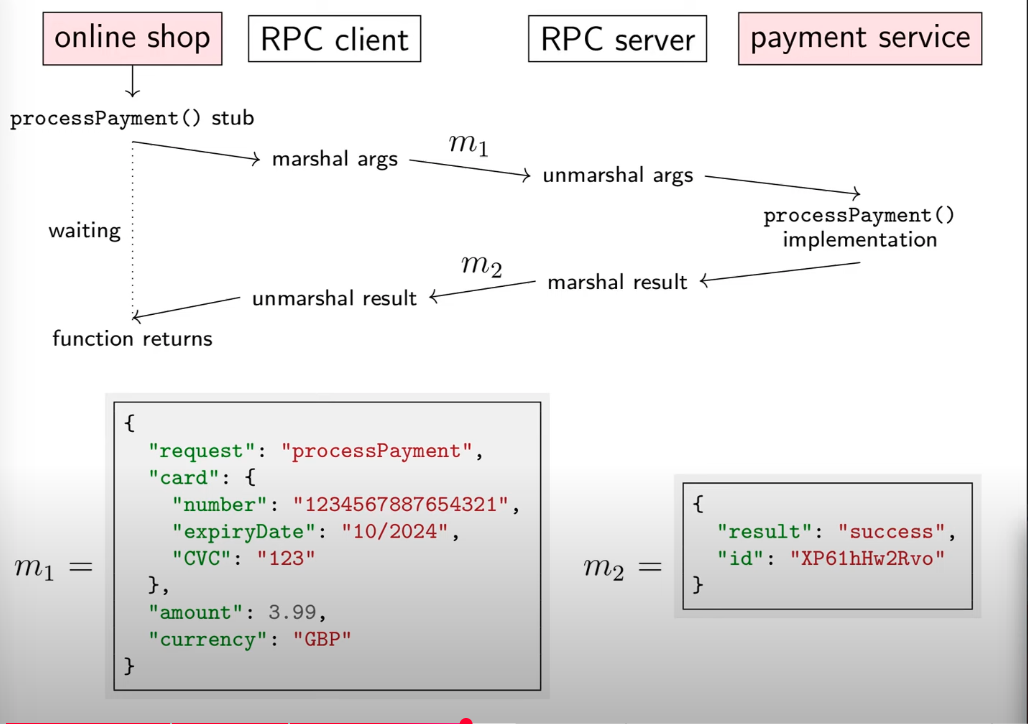Class: CSE 130 Subject: computer-science computer-systems Date: 2025-04-30 Teacher: **Dr. Veenstra
Modularity
Soft Modularity
Function Calls
- implement modularity by dividing code into named procedures
- errors can propagate between modules!
- i.e
- called function never returns(function crashes)
- called function writes values to the wrong location
- i.e
Soft Modularity invites error propagation
- this can be limited by using constrained languages
Solution
- enforced modularity
- but can this be done in a high level language?
Hard Modularity
- essentially use explicit messages for interactions between modules
- client: initiates a request
- server: responds to the request with a response or reply
Advantages
- independent memory and interpreters
- less fate sharing, more fault containment
Communication
- makes use of a “wire” (real or virtual); models like a web browser/server
Remote Procedure Call (RPC)
- essentially acts like a local function call, but over a network
- i.e. calling processPayment() from Stripe’s API
- uses stubs to pack/unpack arguments and communicate
Benefits
- familiar interface for developers
- reduces fate sharing
Limitations
- failure modes (hung call, server down)
- slower than local calls due to :
- network round trips
- [marshaling] overhead
- call-by-reference doesn’t work well
RPC Error Handling
At Least Once
- retries until acknowledgement
Risks
- duplicate side effects
- requires idempotent operations
At Most Once
- one try only; avoids duplicates
Risks
- may silently fail
Exactly Once
- retries + tracking
Risks
- most difficult to implement
